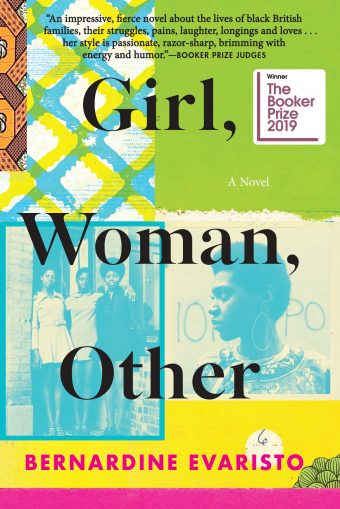
Bernardine Evaristo on the Illusion of Writer's Block
The Author of Girl, Woman, Other Suspects That Oprah
Might Like Her Book
Bernardine Evaristo’s Girl, Woman, Other, which recently won the Booker Prize, is out now from Grove Atlantic. We asked her about writers’ block, her favorite books, and more.
*
Who do you most wish would read your book?
Oprah. I don’t know if her book club has ever featured a novel or book about black Britain, or black British women and if not, now is the time to start. Black women in the UK have been reading African American writers all our lives yet I’m not sure it’s reciprocated. Perhaps Girl, Woman, Other’s Booker win will stimulate interest in not only this novel and my oeuvre, but also in books by other black British writers.
What time of day do you write?
Any time. Ideally first thing in the morning, at around 5 or 6 am, and then throughout the day until 9 pm taking numerous breaks. I can’t sit at my desk for long stints hammering out work without getting up and exercising, going for walks, cycling, a swim, eating (obv), siesta-ing, dealing with admin, seeing people, teaching Creative Writing (at Brunel University London) and wasting time surfing the net. Yet the deeper focus is on my writing all day every day, and eventually, after several years, a new novel is completed. My imagination would wilt and die if I wrote without taking breathers, exercise and engaging with the world.
How do you tackle writers block?
I don’t believe in writer’s block. If there’s a problem with getting words on the page, it needs to be investigated. I think that the act of naming it as this thing called ‘writer’s block’ actually exacerbates the problem and makes the writer feel powerless and the issue insurmountable. What’s really going on? Lack of confidence? (Most likely). Lack of skills and understanding of the importance of structure when it comes to writing a novel or of form when it comes to poetry? Lack of informed constructive feedback? Lack of commitment or patience? Does the writer read books in their chosen genre, which is creative writing 101? And so on.
Which book(s) do you return to again and again?
Midsummer by Derek Walcott. I was already writing and reading poetry when I first encountered his work in the 80s, and this book blew my mind. I found it so moving, imagistic and imaginative. Here was a poet from a small former British colony, St. Lucia, writing with such exquisite artistry about his own life, the life and history of the Caribbean, and drawing on the classical world of Europe and beyond. It didn’t matter that I wasn’t then able to understand and appreciate the richness of all his allusions because I was in awe of his ability to create haunting images transforming the ordinary into the extraordinary. Rather like Toni Morrison, I never aspired to write like him, but I was inspired to find my own style. I still return to this book to relish the poetry of such a genius.
What’s the best writing advice you’ve ever received?
To give my characters goals and obstacles to them. This creates tension and conflict—the life blood of fiction.
Is there a book you wish you had written?
The Road by Cormac McCarthy. I’m not usually a fan of bleak fiction but this is one of the most beautifully bleak novels I’ve ever read. His economy of language, poetry, sense of atmosphere and foreboding, and the bond between father and son is so deeply humane amid such danger and desolation. Wow.
__________________________________

Bernardine Evaristo’s Girl, Woman, Other is out now from Grove Atlantic.



















